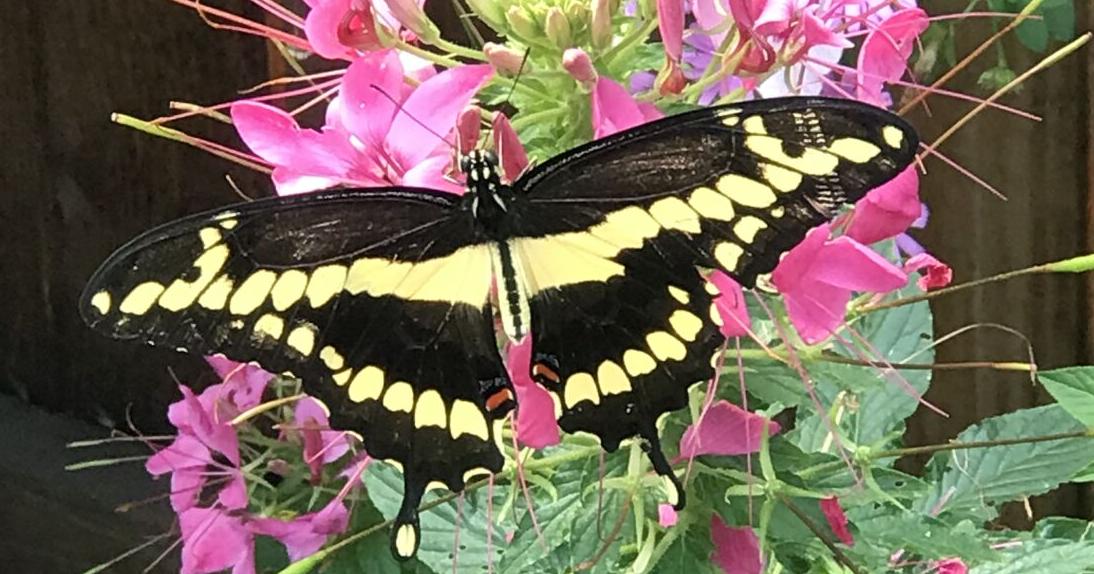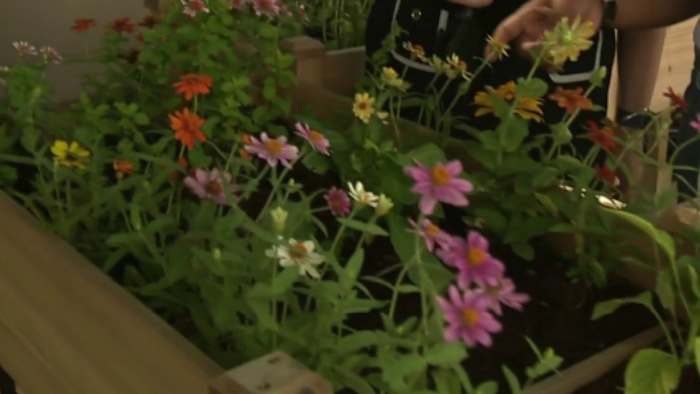You’ve done everything you’re supposed to do and your plants are still underperforming. Water quality and factors such as salts, pH, and alkalinity can determine the suitability of water for use on plants. To understand which type of water is best, it helps to know what’s in each kind of water.
Tap water is suitable for most plants. However, some are too sensitive because of the chemical properties of water. Tap water can contain varying levels of minerals, salts, and chemicals. In addition, some tap water may contain high levels of chlorine or other disinfectants, which can be harmful to some plants, and the beneficial microbes in the soil.
Tap water is readily available and relatively inexpensive. However, my last 29 water bills have determined that’s a lie.
Clarence Schmidt
(Courtesy photo)
The chemical aspect of water is incredibly complex, even more so than my college astronomy class in which I had to study day and night. Suffice it to say that a water quality analysis will commonly show bicarbonates, calcium, chloride, magnesium, sodium, and assorted herbs and spices. Leaving tap water to sit for a day in the sunlight in an open container will allow some of these chemicals to dissipate. If you have a few houseplants to water, this might be an option to try.
However, even boiling water won’t remove all of the chemicals (e.g., chloramine). Make sure you read “The Joy of Boiling Water” and follow the instructions closely.
But on a larger, outdoor garden scale, capturing rainwater in barrels might be more practical for some gardeners.
Rainwater is soft water and is among the most desirable water source for use on plants. Rainwater and spring water come from natural sources and don’t have any added ingredients that can hurt plants.
However, due to its low mineral content, rainwater needs to be supplemented with additional nutrients to ensure proper plant growth.
For additional moisture, try rain dancing. Full disclosure…my back still hurts from doing the salsa.
Considering ballet next. (And the lie detector test determined that’s a lie).
Very cold and hot water can cause root shock for indoor houseplants. Outdoors, rainfall can get as cold as 32°F. During the growing season, the water in your tap won’t be that cold.
Depending on the outdoor temperature, the water inside a garden hose can get 160 degrees, hot enough to cause second-degree burns, according to the Texas A&M AgriLife Extension program. When you first turn on your hose you may need to let it run and cool down before watering your plants.
“Distilled water is made from vaporizing water to steam and then cooling it down. The resulting condensation is relatively free of salts and most contaminants”, according to the University’s Extension program.
Hard water contains high levels of calcium, magnesium, and sodium. While some plants may tolerate hard water, others may show signs of stunted growth, yellowing leaves, or leaf drop.
Hard water is softened with sodium carbonate, and very low levels of calcium, magnesium, or iron. Soft water can be acidic, which can affect the pH balance of the soil. Soft water can also turn the leaf tips brown, so think about using distilled or filtered water for your houseplants.
The pH level of water can also affect plant growth. Most plants like a pH range between 6.0 and 7.0.
Most vegetables and herbs only need a 5.5 to 6.5 pH level to grow. If the water is too acidic (below 7), the magnesium, calcium, and potassium content of the soil would be reduced. And if the water is too alkaline (above 7), the calcium will build up, which can cause insufficient flow of nutrients to the roots.
Water produced using reverse osmosis is relatively free of salts and contaminants and is ideal for use on most plants. R.O. is among the most effective water sources for flowering plants.
Some people prefer water that’s been through a brewery first. This is premium water that isn’t darker than used motor oil. Not for garden use. Harmful to snails and slugs.
According to the California Department of Water Resources, “recycled water is highly filtered and disinfected wastewater” from industrial wastewater and stormwater runoff. Recycled water can be used to irrigate fruit trees, gardens, and lawns, but all fruits, vegetables, and herbs should be thoroughly washed with drinking water before eating them. Recycled water should not be used for drinking, cooking, bathing, or showering.”
“Grey water is untreated, non-disinfected household wastewater from showers, baths, and washing machines. Grey water can be used to water landscape plants and orchard trees. Because grey water can contain bacteria and viruses that cause illness, it should not be used to grow vegetables.”
Private well water is untreated, and there is no guarantee that it is free from harmful bacteria, parasites, or deadly pathogens. Often, well water contains iron which, in excess can cause plants to droop, lose their color or make it harder for plants to absorb essential magnesium, phosphorus, and zinc.
Filtered water is purified water without salt. It’s best for cacti, succulents, tropical plants, and houseplants. Filtered water removes toxins while retaining essential minerals and nutrients.
Spring water contains natural minerals that are essential for your plants to flourish.
If interested, you can have your water tested to determine its pH level, mineral content, and salinity. To find a local water testing lab, visit calwater.com. “Each type of water has its own unique properties, which can affect the growth of plants in different ways.”
One solution…cloud seeding. It’s only $1.95 per raindrop. Times that by a trillion or so drops and you can kiss your retirement plans goodbye. However, my close friend, Wayne Dwops, who asked to remain anonymous, raised the question…should a bankruptcy lawyer expect to be paid?
Schmidt is a Poway resident with over 40 years of gardening experience.









